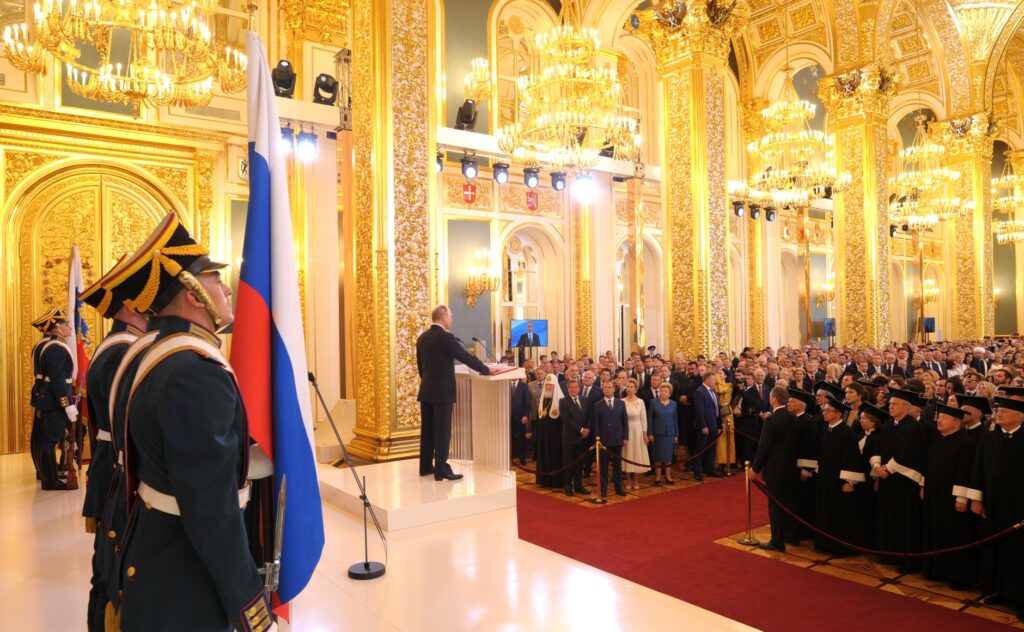Russia’s president Vladimir Putin was sworn in today for a new six-year term until 2030 at a ceremony in Kremlin which was boycotted by the EU and the majority of its member states besides France, Hungary and Slovakia.
When asked yesterday about the EU’s position on whether the member states should accept the invitation to attend the inauguration ceremony, its lead spokesperson on foreign affairs replied that the High Representative Josep Borrell was still working on it but that his personal opinion was that they should not attend.
He did not issue any statement but this morning, talking to the press ahead of the foreign affairs council meeting on development, he addressed the issue.
“After a lot of discussions with Members States, I sent a message to all of them saying that in my understanding, the right thing to do is not to attend this inauguration (of Putin),“ he said. “My advice was not to do it and I think that most of the Member States will not attend. I think it is the right thing to do.”
“In the end, Putin is someone wanted by the International Criminal Court. At the beginning, there was a discussion about Member States [on whether] we had to attend, not to attend, at which level - Ambassadors, Chargés d’affaires. But for me, the position was clear.”
“It was going to be very difficult for the Ukrainians and for many people around the world to understand that we consider Putin someone indicted by the International Criminal Court (ICC), responsible for the war in Ukraine, elections that we contest because they were neither free nor fair elections, and then to attend the inauguration, it would be a clear contradiction.”
EU's own ambassador to Russia has not left Moscow but did not attend the ceremony.
Borrell added that each member state is fully sovereign to decide to go or not to go. Three countries decided to attend the ceremony, France, Hungary and Slovakia. That Hungary under Victor Orban and Slovakia - after a new government with Robert Fico as prime minister took office in October 2023 – attended did not come as a surprise. They oppose any EU military support to Ukraine and pursue a pro-Kremlin policy.
Judging from Putin’s speech, the EU cannot expect that Russia’s war of aggression against Ukraine will end any time soon. He continues to call the war a ‘special military operation’. "I see in this (his reelection) a deep understanding of our common historical goals, a determination to adamantly defend our choice, our values, freedom and the national interests of Russia."
He continues to accuse the West for the war. “We do not refuse dialogue with Western states. The choice is theirs: do they intend to continue trying to restrain the development of Russia, continue the policy of aggression, continuous pressure on our country for years, or look for a path to cooperation and peace.”
The Brussels Times

